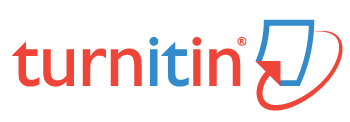Combinatorial Thinking: How AI Relevance to Mathematics Learning Models
DOI:
https://doi.org/10.55719/jt.v9i2.1510Keywords:
Berpikir Kombinatorik, Pembelajaran Blended, Kecerdasan BuatanAbstract
This development study uses a qualitative approach and Didactic Engineering (DE) research methods. The aim of this research is to develop an AI-based learning model by combining discovery and problem based learning models involving mathematics students at PGRI Ronggolawe University, Tuban. AI or artificial intelligence is a tool that needs to be optimized in various fields, especially in the field of mathematics education. Meanwhile, mathematics education has issues related to problem solving on discrete mathematics topics. Starting from this issue, this research tries to offer a solution, the result of which is an AI-assisted blended learning model to improve combinatorial thinking. Through the combination of these models, a combination of syntax is obtained, namely: (1) Orientation; (2) Organization; (3) Exploration; (4) Execution; (5) Evaluation; (6) Generalization. This combination also considers the methods used, namely online and offline. Stages (1) and (2) are carried out offline via the LMS and quiz provider application. Meanwhile, Stages (3) and (4) were carried out involving Question AI. Stage (3) is carried out with the Geogebra alternative auxiliary application. Then stages (4) and (5) are carried out using technology-assisted presentations.
Downloads
References
Aini, N., Juniati, D., & Siswoyo, T. (2018). Understanding the combinatorial thinking through the strategy used by students cognitive reflective in solving permutation. 3, 652–657.
Ammamiarihta, A., Syahputra, E., & Surya, E. (2017). Development of Learning Devices Oriented Problem Based Learning to Increase Student’s Combinatorial Thinking in Mathematical Problem Solving Ability. 104(Aisteel), 334–339. https://doi.org/10.2991/aisteel-17.2017.71
Aziz, Tian Abdul. "Eksplorasi Justifikasi dan Rasionalisasi Mahasiswa dalam Konsep Teori Graf." Jurnal Pendidikan Matematika Raflesia 6.2 (2021): 40-54.
Bikner, A., Knipping, C., & Presmeg, N. (2015). Approaches ti Qualitative Research in Mathematics Education: Examples of Methodology and Methods. Dordrecht; New York.
Fitrah, M., & Fathurrahman, F. (2023). MATEMATIKA DISKRIT: Berbasis Hasil Penelitian Pada Ilmu Komputer. PT. Sonpedia Publishing Indonesia.
Gusteti, M. U. (2024). Era Digital dalam Kelas Matematika: Menggabungkan Teknologi dengan Alat Peraga Tradisional. Mega Press Nusantara.
Kurniawan, R., Pramana, E., & Budianto, H. (2021). The adoption of blended learning in non-formal education using extended technology acceptance model. Indonesian Journal of Information Systems, 4(1), 27-42.
Lockwood, E. (2013). A model of students’ combinatorial thinking. Journal of Mathematical Behavior, 32(2), 251–265. https://doi.org/10.1016/j.jmathb.2013.02.008.
Lusiana, V. (2023). Penerapan Project Based Learning Berbantuan Aplikasi Geogebra Untuk Meningkatkan Berfikir Kreatif Matematis Mahasiswa. TEACHING: Jurnal Inovasi Keguruan dan Ilmu Pendidikan, 3(1), 1-13.
Manuaba, I.B.K., Erwanto, D., Judijanto, L., Harto, B., Sa'dianoor, H., Supartha, I.K.D.G., Wahyudi, F., Pandia, M. and Kelvin, K., (2024). TEKNOLOGI ChatGPT: Pengetahuan Dasar dan Pemanfaatan kombinasi keahlian dengan ChatGPT di berbagai Bidang. PT. Sonpedia Publishing Indonesia.
Nugraha, D., Reftyawati, D., & Sari, Y. A. (2020). The effective school strategic plan implementation: A best practice of school improvement. Attractive: Innovative Education Journal, 2(2), 9-19.
Noor, A. M. N. (2023). Hubungan Filsafat Dengan Ilmu Pengetahuan Dan Relevansinya Di Era Revolusi Industri 4.0 Dan Society 5.0. Jurnal Teknik dan Science, 2(2), 83-89.
Rahman, H., D’Cruze, R. S., Ahmed, M. U., Sohlberg, R., Sakao, T., & Funk, P. (2022). Artificial intelligence-based life cycle engineering in industrial production: a systematic literature review. IEEE Access, 10, 133001-133015.
Rahmawati, N. K., Kusuma, A. P., & Nurrahmah, A. (2023). Kemampuan Pemecahan Masalah Mahasiswa Pada Aplikasi Turunan (Maksimum Dan Minimum) Berbantuan Geogebra. Delta: Jurnal Ilmiah Pendidikan Matematika, 11(1), 13-28.
Rezaie, M., & Gooya, Z. (2011). What do I mean by combinatorial thinking? Procedia - Social and Behavioral Sciences, 11, 122–126. https://doi.org/10.1016/j.sbspro.2011.01.046
Rezkillah, I. I., Julaifah, N., Ramadhani, S., & Kasturi, K. (2024). Model Project-Based Learning Terintegrasi STEAM terhadap Kemampuan Pemecahan Masalah. Jurnal Pendidikan dan Pembelajaran Indonesia (JPPI), 4(3), 1289-1295.
Sari, D. P., Rifai, H., & Emafri, W. (2020, March). Design and manufacture of teaching edupark physics Mifan water park Padang Panjang, Indonesia with discovery learning model. In Journal of Physics: Conference Series (Vol. 1481, No. 1, p. 012097). IOP Publishing.
Sari, N., Fitriasari, P., & Octaria, D. (2020, March). Blended learning with schoology in learning macromedia flash-based instructional media. In Journal of Physics: Conference Series (Vol. 1480, No. 1, p. 012053). IOP Publishing.
Susanti, W. (2021). Pengembangan LKPD Model Problem-based Learning Berorientasi Kemampuan Berpikir Kritis Pada Materi Bentuk Aljabar Kelas VII (Doctoral dissertation, Universitas Islam Riau).
Wahyuni, D. S., Rozimela, Y., Ardi, H., Mukhaiyar, M., & Fatdha, T. S. E. (2023). Proposing a web-based interactive module for education for sustainable development in English for computer science. Register Journal, 16(1), 1-23.
Wulandari, N. P. (2022). THE IMPLEMENTATION OF DISCOVERY LEARNING METHOD TO THE STUDENTS’ABILITY IN WRITING ANALYTICAL EXPOSITION TEXT AT ELEVENTH GRADE (Doctoral dissertation, Universitas Islam Negeri Sumatera Utara).
Wahyuniar, L. S., & Widyawati, S. (2017). Proses Berpikir Mahasiswa Dalam Menyelesaikan Soal Kombinatorial Berdasarkan Kecerdasan Logis Matematis. NUMERICAL: Jurnal Matematika dan Pendidikan Matematika, 103-114.
Uripno, G., Siswono, T. Y. E., Rahaju, E. B., & Wicaksono, A. B. (2023). Students’ Combinatorial Thinking Error in Solving Combinatorial Problem. Indonesian Journal of Mathematics Education, 6(1), 16-22.
Widiyaningrum, T. D. (2023). Pengembangan Modul Program Linear Berbasis Kearifan Lokal Berbantuan Geogebra dalam Meningkatkan Kemampuan Berpikir Logis Mahasiswa (Doctoral dissertation, UNS (Sebelas Maret University)).
Downloads
Published
How to Cite
Issue
Section
License
Copyright (c) 2024 Jurnal Teladan: Jurnal Ilmu Pendidikan dan Pembelajaran

This work is licensed under a Creative Commons Attribution-ShareAlike 4.0 International License.







